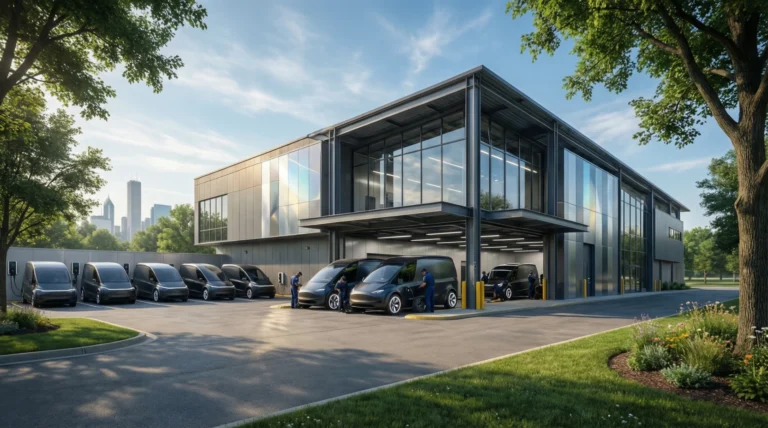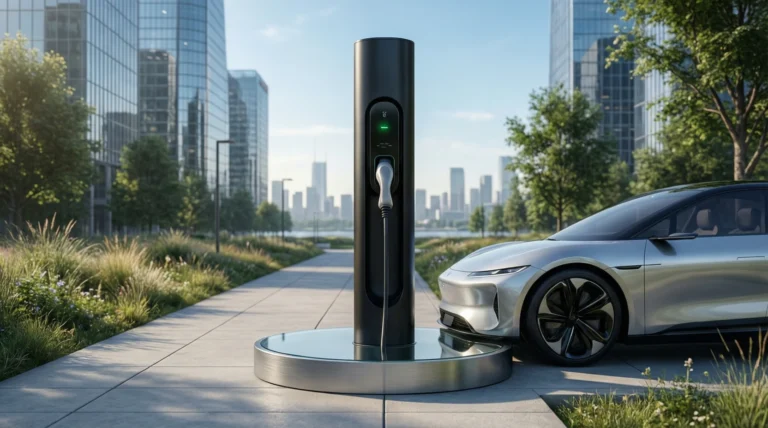
General Motors Company: A Comprehensive Profile of Its Digital Transformation and Innovation Ecosystem (2024)
The “Enterprise Tech Ecosystem Series: Innovation Program General Motors Company 2024″ has been recently added to ResearchAndMarkets.com’s offerings, providing an in-depth look at one of the world’s leading automobile manufacturers. General Motors Co (GM) is not just a traditional carmaker but a forward-thinking enterprise that designs, builds, and markets a diverse range of vehicles, including cars, SUVs, crossovers, trucks, and automotive parts. Beyond its core manufacturing operations, GM also offers automotive financing services through its subsidiary, General Motors Financial Company. The company serves a wide array of customers, from commercial fleet operators and rental car companies to leasing firms and government entities, leveraging both direct sales channels and an extensive network of dealerships.
GM’s portfolio includes iconic brands such as Chevrolet, Cadillac, Buick, GMC, ACDelco, OnStar, Periscope, Ultium, Baojun, and Wuling, among others. With operations spanning North America, Asia Pacific, the Middle East, Africa, and South America, GM has established itself as a global leader in the automotive industry. However, what truly sets GM apart is its commitment to innovation and digital transformation, which has become a cornerstone of its growth strategy.
This report delves into GM’s tech-driven initiatives, offering valuable insights into its digital transformation strategies, innovation programs, and technology-focused activities. By exploring partnerships, product launches, investments, acquisitions, and ICT budgets, the report paints a comprehensive picture of how GM is leveraging cutting-edge technologies to stay ahead in an increasingly competitive market.
Key Insights into GM’s Digital Transformation Strategy
In today’s rapidly evolving automotive landscape, digital transformation is no longer optional—it’s imperative. For GM, this means embracing advanced technologies like artificial intelligence (AI), electric vehicles (EVs), autonomous driving systems, and connected mobility solutions. These innovations are not only reshaping the way vehicles are designed and manufactured but also redefining the customer experience.
GM’s digital transformation strategy revolves around three core pillars:
- Electrification: GM is heavily investing in EV technology, with its Ultium battery platform serving as the foundation for its next-generation electric vehicles. This initiative underscores GM’s commitment to sustainability and reducing carbon emissions.
- Autonomous Driving: Through its Cruise Automation subsidiary, GM is pioneering self-driving technologies. These efforts aim to revolutionize transportation by making it safer, more efficient, and accessible to all.
- Connected Mobility: GM’s OnStar and other connected services provide real-time data analytics, navigation assistance, and emergency response capabilities, enhancing the overall driving experience.
By integrating these technologies into its operations, GM is positioning itself as a leader in the future of mobility.
Accelerators, Incubators, and Innovation Programs
To foster innovation, GM has established accelerators, incubators, and dedicated innovation programs that encourage collaboration between internal teams and external partners. These initiatives serve as breeding grounds for groundbreaking ideas and technologies that can be scaled across the organization.
- Tech Incubators: GM collaborates with startups and entrepreneurs to develop cutting-edge solutions in areas such as AI, IoT, and cybersecurity. By nurturing early-stage ventures, GM ensures it stays at the forefront of technological advancements.
- Accelerator Programs: These programs focus on fast-tracking the development of innovative products and services. For example, GM’s work with startups specializing in EV charging infrastructure has led to significant improvements in user convenience and accessibility.
- Innovation Hubs: Strategically located around the globe, these hubs bring together experts from various fields to tackle complex challenges facing the automotive industry. From developing smarter supply chains to creating personalized in-car experiences, GM’s innovation hubs play a critical role in shaping its tech ecosystem.
Technology Focus and Initiatives
GM’s approach to technology is multifaceted, encompassing partnerships, product launches, investments, and acquisitions. Each initiative is carefully aligned with the company’s overarching goals of electrification, autonomy, and connectivity.
Partnerships
Collaboration is key to GM’s success. The company actively partners with tech giants, universities, and research institutions to co-develop innovative solutions. Notable examples include:
- Microsoft: GM partnered with Microsoft Azure to enhance its cloud computing capabilities, enabling faster data processing and improved vehicle connectivity.
- Honda: A strategic alliance with Honda has accelerated the development of affordable EVs and hydrogen fuel cell technologies.
Product Launches
GM continues to expand its lineup of high-tech vehicles. Recent launches include:
- Chevrolet Silverado EV: An all-electric version of GM’s popular pickup truck, equipped with advanced driver-assistance features.
- Cadillac Lyriq: A luxury EV that showcases GM’s commitment to combining performance with sustainability.
Investments and Acquisitions
GM has made several strategic investments and acquisitions to bolster its tech capabilities. For instance:
- Cruise Automation: Acquired in 2016, Cruise has become a leader in autonomous vehicle technology.
- BrightDrop: Launched in 2021, BrightDrop focuses on delivering sustainable logistics solutions for businesses.
Venture Arm and Investment Network
GM’s venture arm plays a crucial role in identifying and supporting promising startups within the tech ecosystem. Through targeted investments, GM gains access to emerging technologies while fostering innovation across the industry. The company’s investment network map highlights its extensive collaborations with venture capital firms, accelerators, and corporate partners.
ICT Budget and Major Contracts
Understanding GM’s ICT budget provides valuable insights into its priorities and resource allocation. While specific figures may vary, the company consistently allocates substantial resources toward R&D, IT infrastructure, and digital tools. Major ICT contracts often involve partnerships with leading tech providers to implement scalable solutions that drive efficiency and innovation.
Key Executives Leading the Charge
Behind GM’s transformative journey are visionary leaders who understand the importance of staying ahead in the tech race. Key executives include:
- Mary Barra (Chairman and CEO): A champion of electrification and sustainability, Barra has steered GM toward a future-focused vision.
- Doug Parks (Executive Vice President, Global Product Development): Responsible for overseeing GM’s product pipeline, Parks ensures that innovation remains at the heart of every new release.
- Alan Wexler (Senior Vice President, Innovation and Growth): Tasked with exploring new business models and revenue streams, Wexler drives GM’s expansion into adjacent markets.
Why This Report Matters
For stakeholders seeking to understand GM’s tech ecosystem, this report offers unparalleled value. It provides actionable insights into:
- GM’s digital transformation strategies and their impact on the broader automotive industry.
- The company’s innovation programs and how they contribute to long-term growth.
- Specific technology themes and initiatives that are shaping GM’s future roadmap.
- Details on partnerships, investments, and acquisitions that underscore GM’s collaborative approach.
By gaining a deeper understanding of GM’s tech operations, readers can identify opportunities for collaboration, investment, or competitive benchmarking.







